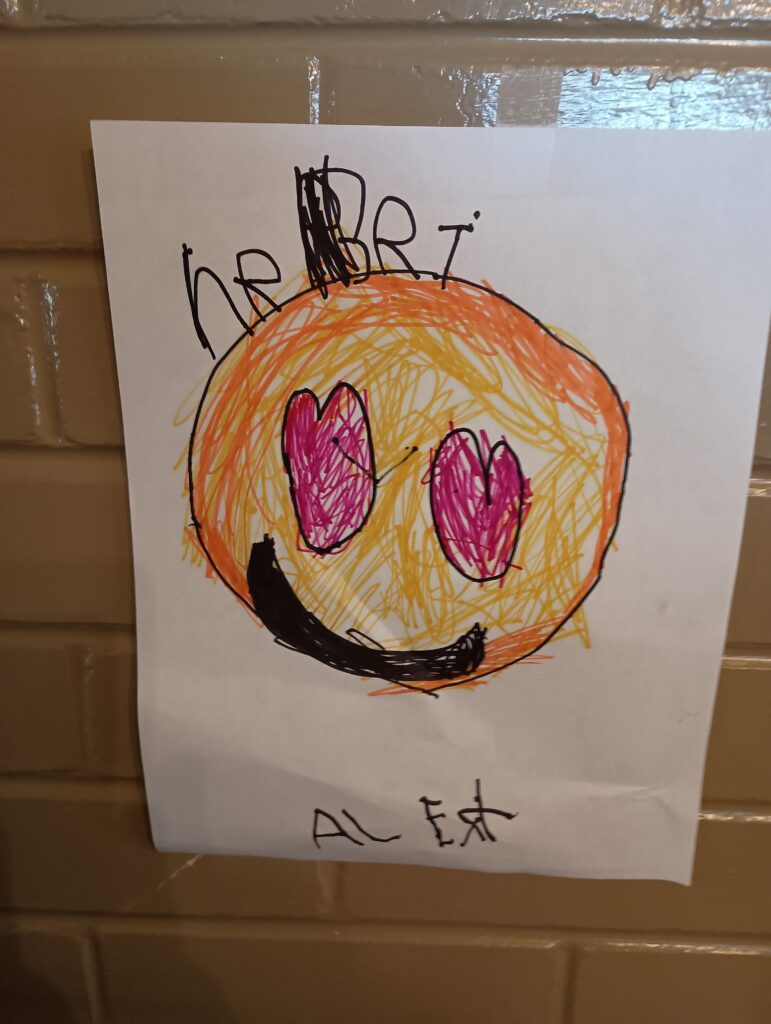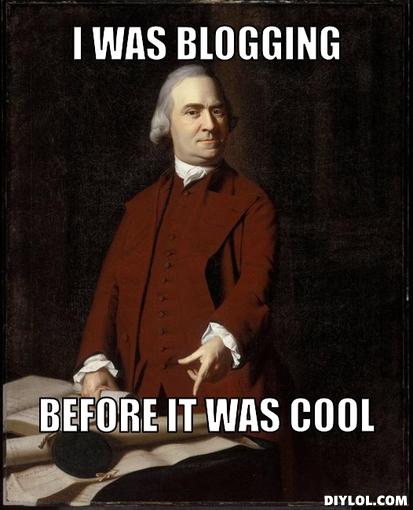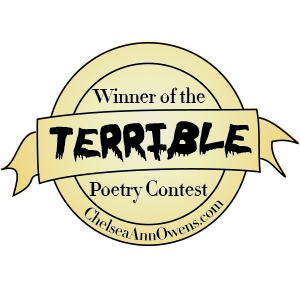Word of the day · Today
bardolatry
[bärˈdälətrē]
NOUN
humorous
excessive admiration of Shakespeare.
Forsooth! Canst one tell the day? The time? Of a truth, today is “Talk Like Shakespeare Day” and if thou wouldst indulge me in a small bit of bardolatry I will shortly relate, if it be not long, how I came to know the bard.
Verily, many people who know me and/or have visited here before, know that I am something of a fan of William Shakespeare. I am not the biggest fan or the most scholarly, but I know what I like and I like Billy S. I became intrigued by the bard when I was a very young teenager and saw or read or heard someone say that the line in Romeo & Juliet, “Romeo, Romeo, wherefore art thou Romeo,” was not an inquiry as to his whereabouts but was about his name. This surprised me and I went to the library and checked it out. I was kind of shocked. My teenage mind understood quite well the opening scene’s bawdy puns and double-entendres and reeled at the idea that this was classic literature. Who had been hiding this stuff?
I checked out The Complete Works of William Shakespeare from the library that day and no, I didn’t understand every word, but the story drew me in. I was understanding the story well enough to get through it. At the end, I found myself wanting to shout at the book the way people at horror movies shout at the person about to go down into the dark basement, “No, you fools! Don’t…” I learned, firsthand, what the word “Tragedy” meant. But in the book were also plays called histories and comedies as well. I don’t recall, but I think that “The Merchant of Venice” was next, then “A Midsummer Night’s Dream.” I discovered some very serious and dark things as well.
At the same time I had an English Teacher, Sonja Maas, who saw that I had an interest and began teaching about Iambic Pentameter and The Sonnets. I had always loved reading and now I was thinking about writing as well. I loved learning about the sonnets and how they were constructed and the patterns that were in them and began to try a few of my own.
During this time I also discovered a poet named Don Marquis. I mention him in passing, but he was, to my idea, a pretty great poet from the 1920s. The work I discovered was a collection of his poems called, The Best of Archy and Mehitabel. Archy was a cockroach who lived in Marquis’ office who claimed to have been a “Vers Libre” poet in his past life. At night, if Don left a piece of paper in the typewriter, archy would climb up on top of the machine and leap down onto each letter and write a poem. It was too much work to include any sort of capitalization or punctuation but it was easy enough to understand. I mention it because about halfway through the book I discovered this poem:
archy confesses
by Don Marquis
coarse
jocosity
catches the crowd
shakespeare
and I
are often
low browed
the fish wife
curse
and the laugh
of the horse
shakespeare
and I
are frequently
coarse
aesthetic
excuses
in bill s behalf
are adduced
to refine
big bill s
coarse laugh
but bill
he would chuckle
to hear such guff
he pulled
rough stuff
and he liked
rough stuff
hoping you
are the same
archy
And yes, I had to agree, at least in part. To be fair to Billy Will, however, I have to point out the roughness of the times he lived in. We’ve all seen cartoons and comics about someone making an awful performance on stage and people throwing rotten tomatoes and things at them. That stuff and worse happened in Elizabethan theaters. The theater was a place for the highbrows and lowbrows and every brow between. And if you were an actor on the stage and did poorly, you could have your brow beaten. So, old Will had to write stuff that caught everybody’s attention immediately. The witches in Macbeth, the Ghost of Hamlet’s father, even the rich prologues, were full of puns, some of which are lost on us today because we say words differently.
This video is a little over 10 minutes long but I thought it was an extremely interesting explanation of the pronunciation of English then and now.
His influence is seen in many places. It is even rumored that he had some sort of advisory capacity in translating and compiling the King James Bible. I couldn’t find any certain evidence. He wasn’t one of the main ones, but I found several places that pointed out that, in Psalm 46, the 46th word from the beginning is “shake” and the 46th word from the end (not counting selah which may be a musical notation) is “spear” and Shakespeare was 46 years old. Most of that is just fluff and stuff but kind of interesting.
In the game, Sid Meier’s Civilization 2 (which I wish Steam had. The game is currently on version 6, but 2 was one of the greatest, in my opinion), when you build a Wonder of the World, it played a 30-45 second clip related to that item. When you build Shakespeare’s Theater you get this:
He is also credited with creating over 1700 words and phrases in the English language, many of which we still use in common, everyday, speech. I love this last clip, from Horrible Histories, where Shakespeare, William, himself, sings about it:
So, if you are stuck in the house and getting tired of it, remember,
Come what come may, Time and the hour runs through the roughest day.
Macbeth













Comments
10 responses to “Happy Birthday Billy S”
I’m all for bringing back the rotten tomatoes. Let’s make things interesting.
Where do we sign the petition?
Is change.org still a thing?
It might be.
That was a fascinating video thanks. Hamlet’s puns are not adverse to double meanings…
That’s for sure.
In the early days of the lockdown I thought it would be fun to record myself reciting the “To be or not to be” soliloquy, but I had more difficulty than I thought I would mastering it. Says the idiot who has never come close to performing Shakespeare…I am indeed a poor player upon the stage.
Yes, sir. I’ve tried a couple of times, too, but there is a reason that theaters exist.
Personally I’ve never been a big fan of Will S after witching watching the vidoe it may be because I don’t speak the language. I do love the song though Keep up the good work Ant the old stuff
;;
;;
;;
I’m addicted to laughter, but don’t send me to therapy
Thanks!